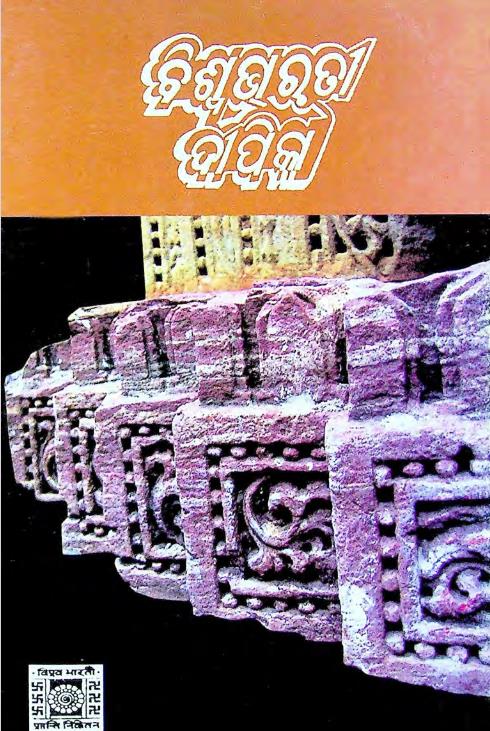Biswabharati Dipika, an impressive endeavor edited by the renowned Giribala Mohanty and published in 2010, stands as a significant pillar in contemporary Odia literature. This literary work not only showcases the richness of the Odia language but also serves as a robust platform for discussing various aspects of Odia culture, heritage, and literature.
Biswabharati Dipika is an anthology that delves into the nuances of Odia language and literature, offering readers a well-rounded understanding of the linguistic treasures embedded within. The compilation comprises various essays, poems, and articles that highlight the contributions of eminent Odia writers, poets, and intellectuals. Each piece is meticulously curated to reflect the vibrancy and diversity of thought that characterizes Odia literature.
Giribala Mohanty, as the editor, brings her profound understanding of Odia literary traditions to the forefront. Her efforts not only preserve but also promote the richness of the language for future generations. Through Biswabharati Dipika, she articulates the journey of Odia literature, threading it with themes of identity, culture, and social relevance.
Key Themes and Contributions
One of the defining features of Biswabharati Dipika is its exploration of cultural identity. The essays within the anthology delve into how language serves as a vessel for cultural expression and preservation. Mohanty emphasizes that the Odia language, with its historical depth and lyrical beauty, plays an instrumental role in shaping the cultural discourse of Odisha.
Additionally, the anthology serves as a dictionary of Odia literature. It catalogues various literary forms and genres, including poetry, prose, folk tales, and modern narratives. Mohanty incorporates discussions on the evolution of these forms, tracing their roots and their transformation over time. This aspect makes Biswabharati Dipika a valuable resource for scholars and students alike, who seek to understand the intricacies of Odia literature.
The publication of Biswabharati Dipika has provoked significant discourse within the literary community. It invites readers to engage with the texts critically and reflect upon their cultural significance. The anthology not only serves as a means of education but also encourages a sense of pride among Odia speakers regarding their linguistic heritage.
Moreover, in a time when globalization threatens the survival of regional languages, Biswabharati Dipika stands as a testament to the resilience of Odia literature. Mohanty’s editorial efforts inspire new generations of writers and poets to explore the depth of their linguistic identity and contribute to the ongoing narrative of Odia culture.
In summary, Biswabharati Dipika by Giribala Mohanty emerges as a vital compilation that bridges the past and future of Odia literature. It is an enlightening resource that encapsulates the essence of the Odia language and its role in cultural identity. This anthology not only educates but also inspires, reminding us of the profound connection between language, culture, and literature. Through its rich content, Biswabharati Dipika reinforces the notion that the literature of every language is a reflection of its people, their struggles, joys, and aspirations.
Books Info
| Books name | Biswabharati Dipika/ବିଶ୍ୱଭାରତୀ ଦୀପିକା |
| Author | Giribala Mohanty, Ed. |
| No Of pages | 88 |
| Publisher | NA |
| Publication | 2010 |
| Printed At | Athena Books |
| Distributor | NA |

